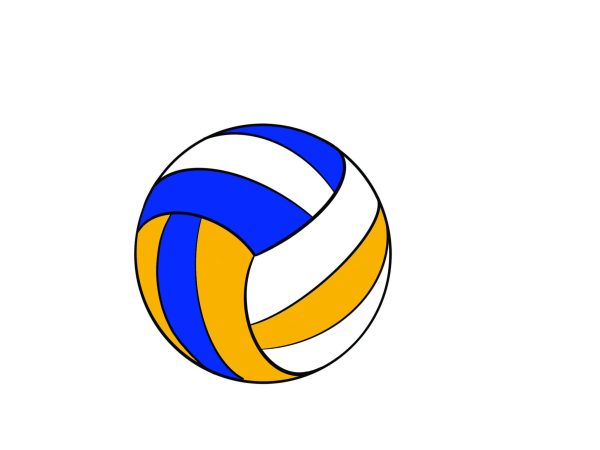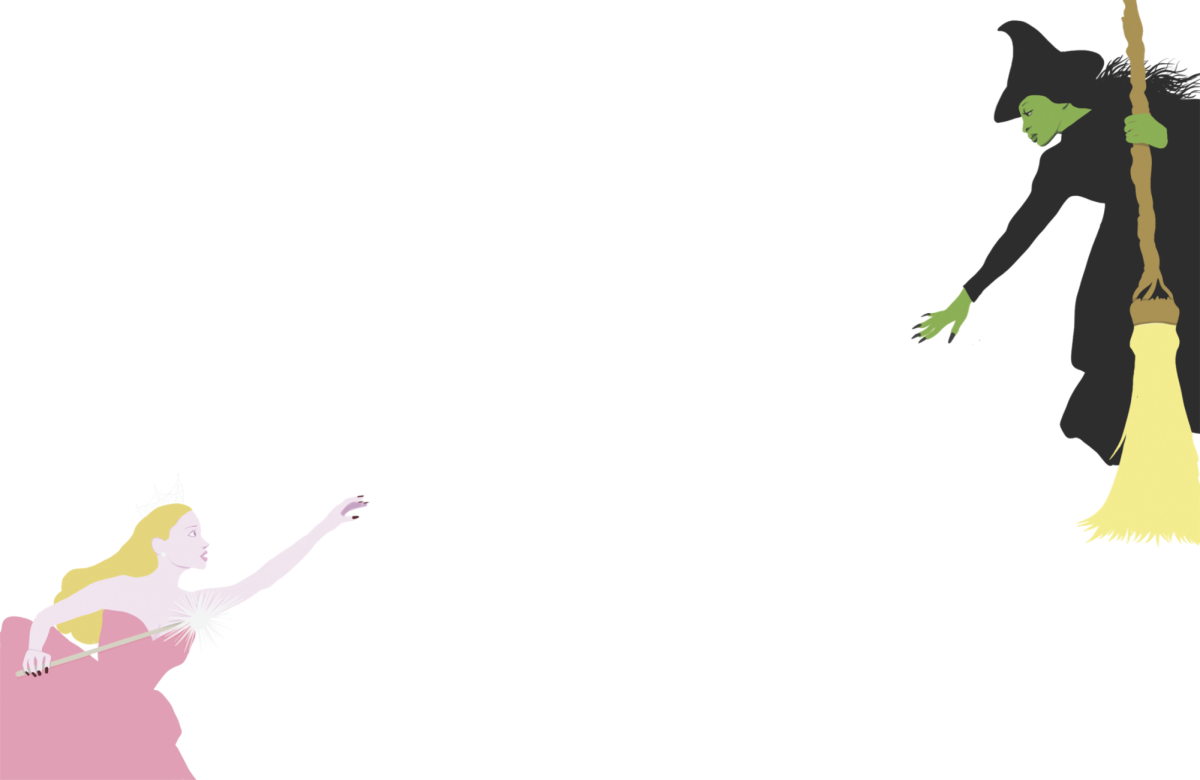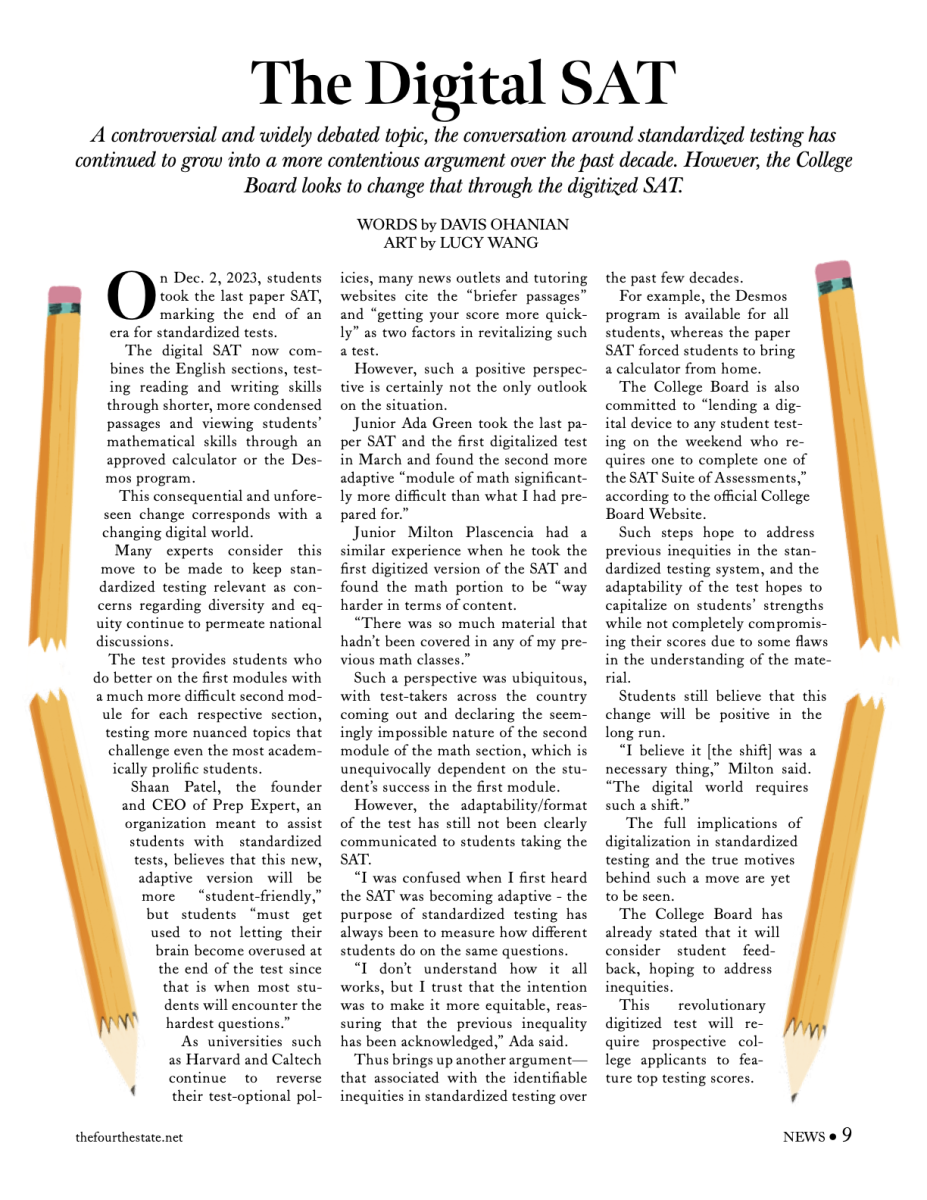The Upper School requires a mandatory sports requirement to fulfill graduation requirements. This is typically done through one season of school sports per year or completing a regulated number of hours in independent athletics.
Alternatively, students are provided with the option to participate in the spring musical to fulfill this requirement. While many take part in this extracurricular, not all studen

ts support the policy. Many athletic students see the spring musical as a “cop-out” for the sports requirement because it is not purely physical activity and lacks regular competition. Additionally, many student-athletes do not think it is equal that they still have to fulfill their performing art requirements.
“I just think it’s unfair that I have to do a theater requirement if they don’t have to do a sport. If it’s a musical and you’re dancing, that’s a physical activity. Theater–I’ve never done theater–but I understand that it takes a toll on you, and I understand both of them are mentally and physically taxing in different ways,” said Girl’s Volleyball Captain Senior Sarah Woodhouse.
Most participants of the musical consider the musical an adequate alternative source to building cooperation and to take as much effort as physical athletics. For both cast and crew, it is UC-accredited as a sport. Rehearsals for the musical entail choreography, singing, blocking, and acting and are of a similar time commitment to many Laguna sports–with rehearsals often requiring multiple hours all five days of the school week and time spent in the theater on weekends.
Dana Caldwell, the Performing Arts Chair, cites “collaboration, team building…showing up for your team…prioritizing, learning how to manage your time…pushing yourself and your limits…showing up for something greater than yourself” as the values students can gain from both theater and athletics.
“Sports and theater have way more in common than I think people see at face value,”
The most prominent differences critics see between the musical and athletics are the physical and the competitive aspects.
“Before seeing some of these plays, I’d be like, that’s not like a physical thing. But after seeing ‘Beauty and the Beast,’ I’d be like, people are running around and people are carrying each other and all these things,” Social Science Instructor and Girls Basketball coach, Charlie Aslesen, said.
Student actors have rehearsals devoted specifically to dance and choreography. However, it is worth noting that the amount of time focused on physical activity is significantly less than that of traditional athletics; dance rehearsals are roughly two and a half hours one to two times a week, while most sports at Laguna have athletic practice five times every week. Athletes also have to participate in league games–sometimes more than once a week–and face a higher risk of physical injuries.
The team dynamic is also different with opponents and regular competitions.
“The main benefit I see is just there is an undeniable team building aspect, one that you do have in theater,” said senior student actor Dylan Charney. “but it’s a different kind of team building when you’re working towards a common goal of winning this next game.”
Unlike sports and some theater programs at other schools, Laguna’s theater does not have regular competitions, so the motivation binding the team stems is more intrinsic than traditional athletics.
Sarah said, “I understand other people are not competitive, but I just think it’s a good thing to experience [competitive sports] at least once in your life, and high school is the time to do th
at.”
Just as some students are not competitive, not all students are creative. The UC’s admission requirements dictate two semesters of one discipline falling under the visual or performing art category. However, on top of the UC requirement, Laguna’s graduation requirements ask for an additional semester of another art discipline. This correla
tes with Laguna’s goal to produce multifaceted students, as it pushes students to step out of their comfort zones and develops the value of creative expression.
 A competitive sport requirement would have a similar effect but instead, instill a competitive drive in students. Sarah said, “If I do two sports or three sports in a year…I should be exempt from a theater requirement.” Laguna’s arts requirement allows students to avoid competition-based sports but makes them participate in both performing and visual art.
A competitive sport requirement would have a similar effect but instead, instill a competitive drive in students. Sarah said, “If I do two sports or three sports in a year…I should be exempt from a theater requirement.” Laguna’s arts requirement allows students to avoid competition-based sports but makes them participate in both performing and visual art.
While it is challenging to balance student comfort with new experiences, students have different strengths and interests, and it’s important to allow them similar choices.




































